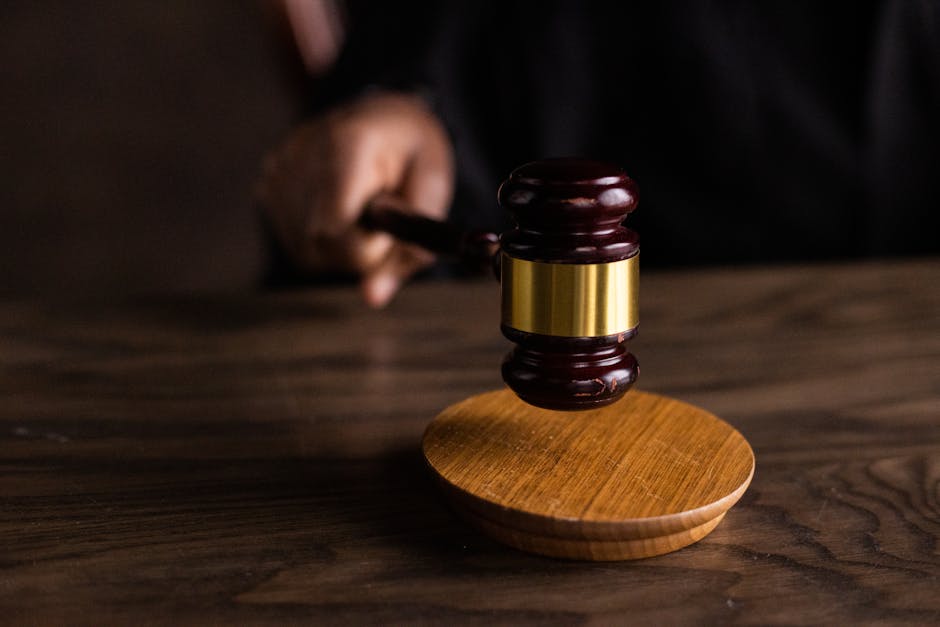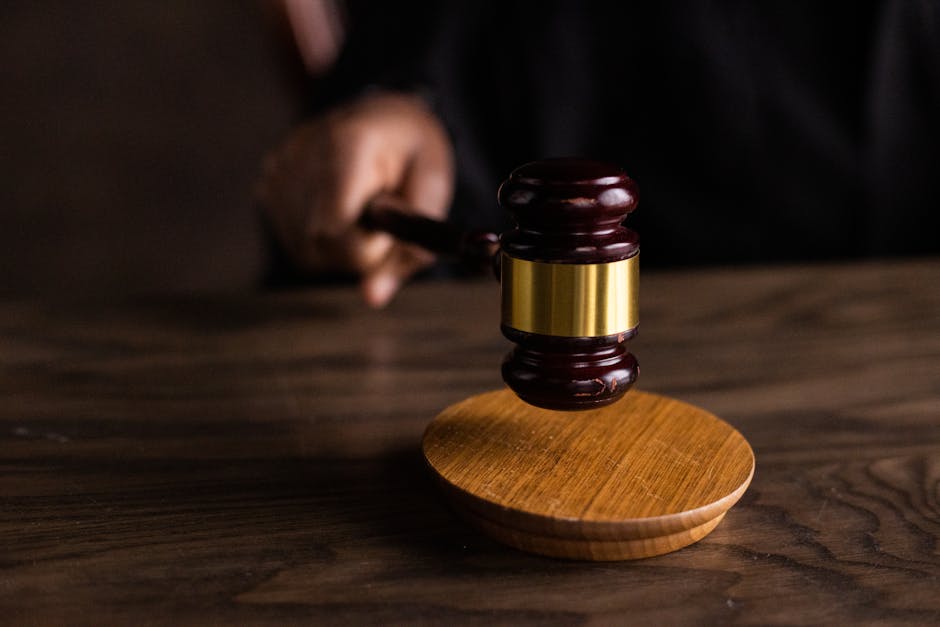Have you ever found yourself in a situation where you felt wronged but thought the issue was too small for a big legal battle? Small Claims Court in Prince George’s County, MD, is designed for such scenarios. It’s a place where everyday disputes over money, property damage, or contracts can be settled without the need for expensive lawyers or complex legal procedures. This article aims to guide you through understanding and utilizing Small Claims Court effectively.
Understanding Small Claims Court in Prince George’s County, MD
Navigating Small Claims Court in Prince George's County, MD
Ever encountered an issue that didn't seem right and felt you deserved justice, but it just wasn't big enough to involve those long courtroom dramas you see on TV? Maybe a landlord kept your security deposit unjustly or someone owed you money but refused to pay up. That's where Small Claims Court comes into play, especially in Prince George's County, MD. It's designed for regular folks like you and me to resolve smaller disputes without needing expensive attorneys or navigating complicated legal landscapes.
What is Small Claims Court, You Ask?
Well, it's a special part of the court system where you can argue cases involving a certain amount of money (in Prince George's County, MD, this limit is $5,000 for individuals and $10,000 in particular cases) without needing to dive deep into legal jargon or hire a legal team. Think of it as the court's quick-service window—designed to serve justice fast and without the frills.
Who Can Use It?
Pretty much anyone! If you're over 18 and have a clear head on your shoulders (meaning, you're mentally competent), you're eligible to file a claim. But, it's not just a free-for-all. There are rules to follow. For one, businesses can file against individuals or other businesses too, but remember, federal agencies are off-limits.
Disputes That Small Claims Handles
Wondering if your gripe fits? Here's a quick list:
- Unpaid Debts: Nobody enjoys being ghosted, especially when it comes to money. If someone owes you and won't pay, this court can help get your cash back.
- Property Damage: If your stuff gets destroyed and the person responsible won't pay up for repairs, filing a claim can aid in getting you compensated.
- Breach of Contract: Signed agreements should be honored. If not, the court can step in.
- Personal Injury: Got hurt because someone was careless? This might be your arena for compensation.
- Security Deposit Disputes: Landlords refusing to return your rightful money? Demand it back through the courthouse.
Prepping and Filing Your Claim
Filing a claim might sound daunting, but it's really not. Here's the deal:
- Pinpoint the right court location. It should align with where the person you're suing lives or where the incident happened.
- Dive into those records of yours. Emails, contracts, pictures—any evidence you have. You'll need these to back up your story.
- Fill out the required forms. They're simpler than you think and they're your ticket to getting the ball rolling.
- After filing, the court will issue a date for you to have your day and speak your truth.
Be advised, there's a small fee involved—though costs vary depending on the case details.
Court Day: Showtime!
Once you're in court, it's your chance to speak up. Present your evidence clearly and let the judge know exactly why you deserve to win. Stay on point and stay calm—it's about the facts here.
Small Claims Court in Prince George's County, MD, opens the door for everyday people to seek justice without all the complexity usually involved in legal battles. Whether you win or not isn't guaranteed, but at least you'll have had a fair shot in front of a judge.
Remember, legal matters can be tricky and sometimes things don't always pan out as hoped. However, knowing there's a place you can turn to, like the Small Claims Court, brings some peace of mind when dealing with disputes. Keep it straightforward, honest, and factual, and let justice take its course.

Filing a Small Claim in Prince George’s County, MD
After taking all the essential steps to prepare and file your small claim in Prince George's County, MD, especially for rent collection, it's crucial to know how to handle the actual court proceeding effectively.
Arrive Early at Court
Plan to arrive at least 30 minutes early. This gives you enough time to find the courtroom and settle any nerves before the proceedings begin. Court schedules can be tight, and showing up late might mean your case gets delayed or, worse, dismissed.
Dress Appropriately
Though there's no need for formal attire, dressing neatly shows respect for the court. Opt for business casual or an outfit you'd wear to a job interview. Your appearance can have a subtle impact on how you're perceived.
Bring All Necessary Documents
Organize your evidence, such as lease agreements, rent receipts, communication records with the tenant, and any photos or videos documenting the condition of the property. Have everything in order, clearly labeled, and easily accessible to present your case efficiently.
Understand the Process
The small claims court process in Prince George's County is designed to be simple, so individuals can represent themselves without a lawyer.1 Typically, the judge will allow both parties to present their case. You'll have the opportunity to explain why you are requesting rent collection, show your evidence, and answer any questions the judge might have.
Be Respectful and Calm
Always address the judge as "Your Honor," and be respectful to all court staff and the opposing party. Even if emotions run high, stay calm and focused. This professionalism can positively influence the court's perception of your case.
Clearly Present Your Case
Speak clearly, stick to the facts, and avoid unnecessary details that don't contribute to your main point: collecting the overdue rent. Explain how you've attempted to resolve the matter outside of court and how those attempts have been unsuccessful.
Listen and Respond Appropriately
Pay close attention when the tenant presents their side or when the judge asks questions. Be prepared to calmly respond with facts that support your case. Avoid interrupting or reacting emotionally to statements you disagree with.
Follow Post-Court Instructions
Win or lose, there will be specific steps you must take after the court decision. If you win, you might need to follow up with the court for collection procedures. Loss doesn't necessarily mean the end if you believe you have grounds for an appeal, but consider the time, effort, and costs involved.
Small claims court in Prince George's County provides landlords an avenue to pursue overdue rent in a setting that balances formality with accessibility. Remember that every case is unique, and outcomes can vary based on the evidence presented and legal defenses raised by tenants. By adhering to these guidelines, you'll maximize your chances of recovering owed rent while ensuring the process runs smoothly.

Preparing Your Case for Small Claims Court
When dealing with a rent collection dispute and preparing to present your case in small claims court, it's crucial to come prepared. Let's dive into how you could effectively prepare your case to stand a strong chance of achieving a favorable outcome.
Review your rental agreement closely. This document is the foundation of your relationship with your tenant, so understand every clause. Highlight sections that directly pertain to rent collection, due dates, penalties for late payments, and the process for handling disputes. This step ensures you can point to specific agreement violations if any exist.
Gather evidence meticulously. Think of evidence as the backbone of your case. This includes rental payment records, bank statements, communication logs (emails, texts, letters) between you and the tenant regarding rent payments, notices given to the tenant about missed payments, and any other relevant documents. Organize these documents chronologically for easy retrieval during your court presentation.
Calculate the total amount owed accurately. Include unpaid rent, late fees, and any damages if applicable—but remember that the claim should primarily focus on the rent collection dispute. Detailing the total amount helps the court understand the extent of the financial impact.
Pen down a clear, factual narrative of events leading to the dispute. Use dates, times, and specific incidents to illustrate how the tenant breached the rental agreement. Keep the language simple, direct, and free of emotions or opinions. The goal is to present an unbiased timeline of events.
Prepare a list of potential questions you might face from the tenant or judge and rehearse your answers. Knowing your case inside out allows you to respond confidently and accurately without getting flustered. Include questions that could challenge your position so you're not caught off guard.
Consider witnesses. If there are individuals who have relevant information or have witnessed relevant events (e.g., property managers, neighbors), decide if their testimonies would strengthen your case. Make sure they're willing and available to come to court on the day of your hearing.
Plan your presentation. Even though the atmosphere in small claims court is less formal, having a structured presentation helps keep your case clear and persuasive. Outline your points in the order you plan to present them, making sure to tie each point back to your evidence.
Contemplate potential resolutions. Before you step into court, think about what outcomes you're willing to accept. Would you consider a payment plan? Would partial payment be acceptable? Knowing your bottom line can help during negotiation phases or if the judge suggests mediation.
Taking these steps helps ensure you are well-prepared to present your rent collection dispute in small claims court confidently and clearly. Remember, preparation is key to articulating your side of the story compellingly and accurately.

Photo by hope_house_press_leather_diary_studio on Unsplash
Small Claims Court in Prince George’s County offers a straightforward path to justice for those facing financial disputes or seeking compensation for damages. By preparing your case thoroughly and presenting it clearly, you stand a good chance of achieving a favorable outcome. Remember, the key to success lies in being organized, calm, and respectful throughout the process. With this approach, Small Claims Court becomes an accessible avenue for resolving disputes efficiently and fairly.
- Maryland Courts. Small Claims: How to File a Small Claim in the District Court of Maryland. Published 2021.
